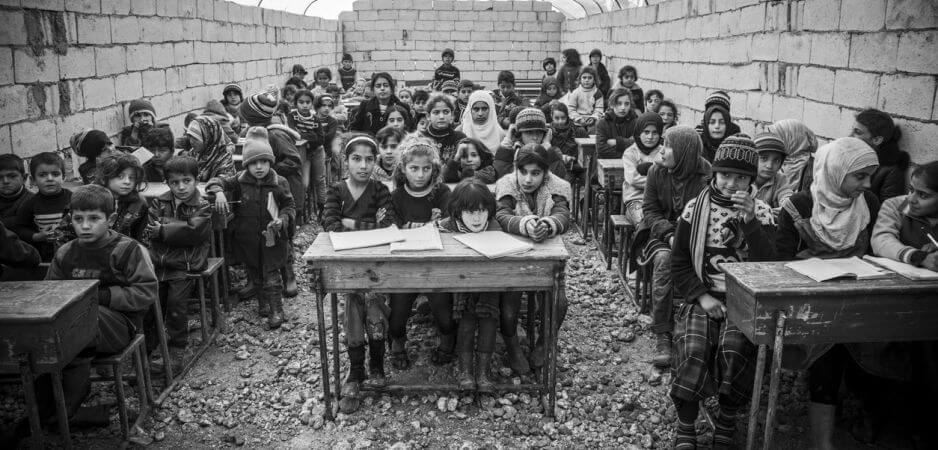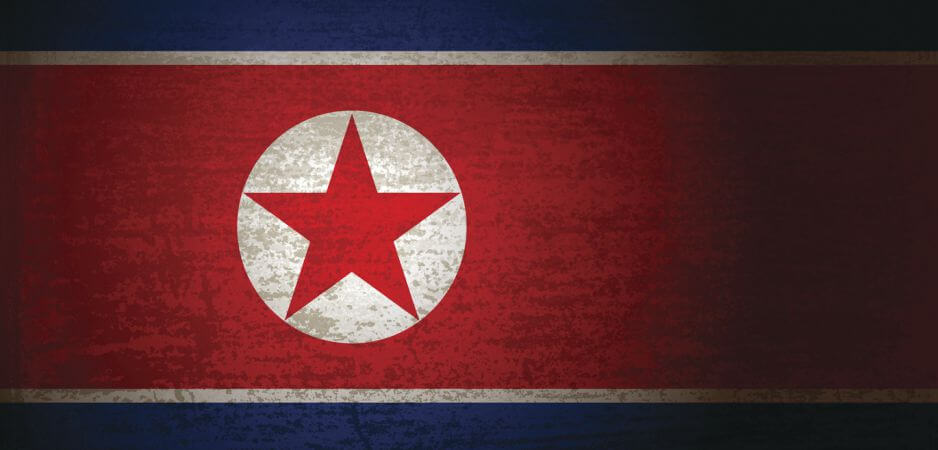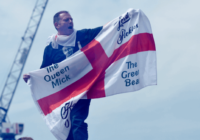Dutch voters chose their calm and composed prime minister over his rabble-rousing challenger who has shifted the entire political spectrum rightward.
North Korea was the subject of a recent edition of The World This Week. This week, US Secretary of State Rex Tillerson declared that Washington’s policy of “strategic patience” with the Hermit Kingdom was over. He said the option of preemptive military action is now “on the table” if the North Koreans “elevates the threat of their weapons program.” At a time when the South Korean president has been impeached and its politics has turned more exciting than the country’s fabled soap operas, Tillerson has added a new twist to the Korean plot.
The Korean drama was overshadowed by developments in the United Kingdom. Even as British Prime Minister Theresa May prepared to bid adieu to the European Union (EU), Scottish First Minister Nicola Sturgeon announced that she would seek a new referendum on her country’s independence. Brexit is threatening not only to break up the EU, but also split apart the UK. In the words of The Economist, “The English-led move to leave a 40-year-old union with Europe is pulling at the seams of its 300-year-old union with Scotland.”
Yet the famously phlegmatic and pragmatic Dutch take center stage this week. Over 80% of voters turned up to the polls in this nation of 17 million people. Prime Minister Mark Rutte’s The People’s Party for Freedom and Democracy (VKD) won 33 out of 150 seats in parliament. The far-right Freedom Party led by Geert Wilders did not do as well as opinion polls predicted. In the run up to the elections, its support melted. But Wilders got over a million votes, led his party to second position and controls 20 seats in parliament. Wilders has warned that Rutte has “not seen the last of him” and that the “patriotic spring will happen” still.
WHY WAS THE DUTCH ELECTION IMPORTANT?
Many feared that Wilders would lead the far right to a historic victory in the Dutch general election. This would have been a shot in the arm for leaders like France’s Marine Le Pen and Germany’s Frauke Petry. Therefore, the election in Europe’s sixth largest economy assumed the importance of a bellwether for how the far right would fare in the forthcoming French and German elections.
It is now common knowledge that the rise of the far right is setting off alarm bells across Europe. In May 2016, Europe came within 31,000 votes of electing its first far-right head of state in Austria. Parties like the Freedom Party of Austria (FPÖ), the National Front in France, Jobbik in Hungary and Golden Dawn in Greece focus on national identity and strong leadership. They are Euroskeptic, anti-immigrant and led by charismatic rabble-rousers. Large chunks of the electorate in Italy, Germany, Denmark and Sweden have turned to the far right in exasperation with their political establishments. Why?
Many blame two crises for the rise of the far right.
First, the economic crisis afflicting Europe is causing deep pain in many countries. Unemployment is high, wages are low and the fabled European welfare states seem destined to crumble because of aging populations and a debilitating debt crisis. Brussels seems too remote from people’s lives where unaccountable bureaucrats quaff champagne and dine on foie gras. More importantly, Brussels does not seem to have answers to the economic crisis that has plagued Europe for the past few years. Neither do national elites in capitals like London, Paris and Vienna.
Second, the migrant or refugee crisis is causing much concern across Europe. Immigration has long been a problematic issue in a land that once called itself Christendom. Tutors in Oxford still conjecture what might have happened if the Moors won the Battle of Tours. The Ottoman siege of Vienna still lives on in Austrian memory. The Hungarians, the Bulgarians and the Serbs might not agree on much, but they delight in narrating tales of Ottoman oppression.
So, the specter of “a swarm of people coming across the Mediterranean, seeking a better life, wanting to come to Britain” bothers the leaders of a lovely island where the statue of Richard the Lionheart stands tall outside the Palace of Westminster. The fact that Europe is an economic and demographic crisis accentuates what Mark LeVine calls the “fear of Eurabia.” Assaults on women as in Germany on New Year’s Eve in 2015 deepen European anxieties about drowning in a “blood-dimmed tide” of Muslim immigrants.
In the Netherlands, Wilders has proved to be a wily leader of the far right. He was leading in the opinion polls. Traditional parties were on the decline with their membership dwindling rather alarmingly, as per an astute analysis of the Financial Times. Wilders had pledged to ban the Quran, close all mosques and take his small but significant country out of the EU. The prospect of a “platinum-blond rabble-rouser” winning the elections was not exactly reassuring to many not only in the Netherlands, but the rest of Europe.
Brexit has already dealt the EU a huge blow. Many are worried that the great European project itself might be unraveling bit by bit. The Dutch election results demonstrate that there is still significant support for the EU. Pro-EU parties such as Green-Left and D66 did rather well. Jesse Klaver, the young Green-Left leader, ran an optimistic grassroots campaign to which many voters responded because of its social, liberal and green message. “Jessiah,” as Klaver is nicknamed, is the kind of populist who offers an alternative to types of Wilders, and he has inspired many beyond Dutch borders.
“SAFETY AND STABILITY” FOR NOW, BUT RISKS REMAIN
Rutte celebrated winning his third term as prime minister by declaring that the Dutch people “rejected the wrong kind of populism.” As per Rutte, they voted for safety and stability instead. Yet it is important to remember that Rutte’s party had 41 seats in the previous parliament as compared to 33 in the current one. The Dutch may have voted for the status quo, but they have clearly not given it a thumping endorsement.
Every democracy has its peculiarities. Donald Trump won the US Electoral College despite losing the popular vote. The first past the post electoral system of the UK enabled David Cameron to win a comfortable parliamentary majority in 2015, despite getting 36.9% of the total vote. In contrast, the Dutch proportional representation system has a low threshold for entry into the parliament. This “open and diffuse” system allows for many parties and for new ones to form easily. Thirteen parties sit in parliament, with seven splitting most seats between them.
 Such a system leads to a culture of coalition, compromise and consensus. Rutte got 21% of the vote and 33 seats, Wilders 13% and 20 seats. Together, the two largest parties command barely a third of the seats in parliament. Governments in the Netherlands can only emerge after protracted negotiations and are invariably coalitions. While it is easier for creatures like Wilders to come to the fore, it is harder for them to win power because the Dutch vote is inevitably fragmented.
Such a system leads to a culture of coalition, compromise and consensus. Rutte got 21% of the vote and 33 seats, Wilders 13% and 20 seats. Together, the two largest parties command barely a third of the seats in parliament. Governments in the Netherlands can only emerge after protracted negotiations and are invariably coalitions. While it is easier for creatures like Wilders to come to the fore, it is harder for them to win power because the Dutch vote is inevitably fragmented.
The big risk for the Netherlands is deepening and widening of chasms in society. Wilders and Jessiah lead two ends of the Dutch spectrum. Even as traditional parties decline, new extreme parties might rise. The Netherlands has been slow to emerge out of Europe’s economic crisis. Rutte had to cut social spending, raise retirement age and reduce mortgage tax deductions. He was accused of neglecting the elderly and raising costs of health care extortionately. In 2012, Wilders triggered Rutte’s resignation by refusing to support the prime minister’s austerity cuts, calling them an attack on the elderly.
During the 2017 election campaign, Wilders repeated the charge. In a televised debate, he excoriated Rutte for providing better care for prisoners than for the elderly. Those who watched the debate say this jibe hurt the modest but steely Rutte. There have been both winners and losers even in the affluent Dutch economy. Like other far-right populists, Wilders has a point when he champions the losers of globalization. Blaming immigrants for all the woes of the working class might not be right or wise, but Wilders has been consistent in putting such woes in the spotlight.
Even as thorny economic issues dog the Netherlands, immigrants are proving to be trickier than ever. In this fabled land of tolerance where prostitutes seduce tourists, coffee shops sell pot and 4-year olds start sex education in kindergarten, immigrants and their children are proving hard nuts to crack. In 2004, a Dutch-born Muslim shocked the Netherlands by shooting dead the filmmaker Theo van Gogh, a descendant of Vincent van Gogh’s brother. Along with Somali-born Ayaan Hirsi Ali, van Gogh had made a provocative film highly critical of Islam.
The filmmaker’s murder was not the first in the Netherlands. In 2002, the right-wing politician Pim Fortuyn was assassinated. The openly gay Fortuyn had called Islam a “backward” culture and opposed immigration. A left-wing activist confessed to Fortuyn’s assassination and claimed that he had pulled the trigger to defend Dutch Muslims from persecution. Although this was the first political assassination in the Netherlands in 400 years, van Gogh’s murder shocked the country more and, according to The Guardian, shattered the country’s “liberal dream.”
CULTURE, IDENTITY AND INTEGRATION
Wilders might have lost but he has put issues of culture, identity and integration at the heart of Dutch politics. Turkish President Recep Tayyip Erdoğan did his bit to stoke these issues. A furious diplomatic row broke out between Turkey and the Netherlands during the election. Relations after the elections continue to be tense.
What is going on?
Earlier this year, the Turkish parliament set in motion constitutional changes that give Erdoğan nearly untrammeled powers and allow him to remain in office till 2029. In mid-April, Turks will vote in a referendum to accept or reject the new constitution. Unsurprisingly, Erdoğan is campaigning hard to win the referendum. Since many of his countrymen live in Europe, hold Turkish passports and can vote in the referendum, Erdoğan has dispatched his trusty aides to win their support.
Turkish Foreign Minister Mevlut Cavusoglu decided to pay Rotterdam a visit. Unfortunately for him, Dutch law does not allow public rallies about another country’s politics. Such niceties were lost on Erdoğan’s trusty Sancho Panza. He insisted on coming as an unwelcome guest and threatened sanctions on the Netherlands. The Dutch were left with no option but to revoke Cavusoglu’s landing rights.
Fatma Betul Sayan Kaya, another minister in Erdoğan’s cabinet, was escorted back to Germany when she tried to reach Rotterdam. A furious Erdoğan then lashed out against the Netherlands, calling them “Nazi remnants” and fascists. He went on to blame them for the 1995 Srebrenica massacre, when Bosnian Serbs murdered 8,000 Muslim men and boys. Rutte responded calmly but firmly and chided Erdoğan for “a crazy remark” that was “way out line.” The prime minister’s pragmatic and phlegmatic manner won him much credibility with his voters.
Hundreds of Turkish-Dutch did not respond like Rutte though. They launched ferocious pro-Erdoğan protests. As a result, Dutch police had to use truncheons, water-canons, men on horseback and dogs to break up stone-pelting crowds. Wilders seized on the occasion to question the loyalty of these protesters. He queried whether they owed their loyalty to their adopted or native country. About 400,000 people of Turkish descent live in the Netherlands. Most of them are descendants of guest workers who arrived in the 1960s and 1970s. Many are from lower socioeconomic backgrounds, live in depressed parts of the country and struggle to find jobs.
Furthermore, the Turkish-Dutch struggle to integrate and have faced multiple assimilation problems for many decades. They often look at Turkey with nostalgia and seek identity in Islam. According to The Economist, most of those who can vote in the forthcoming Turkish referendum are backing Erdoğan. In a liberal and largely irreligious country, the conservatism and religiosity of the Muslim minority attracts attention. More importantly, the vast majority of the Dutch finds the Turkish-Dutch support for Erdoğan incomprehensible if not alarming. Naturally, this leads to tensions. Wilders exploits them by calling Muslims a “fifth column” that will, bit by bit, drain the sap of the Dutch nation.
Wilders may have lost, but he has dragged much of the Dutch political establishment to the right. Rutte campaigned forcefully on Dutch values and told immigrants to leave if they got annoyed with how the Dutch deal with each other. Like the late Fortuyn, Wilders admires Israel and detests Islam. He finds Muslims in the Netherlands far too socially conservative in matters of sexual freedom and their attitudes to homosexuals concerns him. Wilders once told the BBC, “I believe we have been too tolerant of the intolerant. We should learn to become intolerant of the intolerant.” Some of the Dutch emphatically agree.
*[You can receive “The World This Week” directly in your inbox by subscribing to our mailing list. Simply visit Fair Observer and enter your email address in the space provided. Meanwhile, please find below five of our finest articles for the week.]
Conspiracy Theory in a Post-Fact World
The fact that something that contradicts official accounts sounds like a possible conspiracy theory doesn’t mean it may not be true.
It didn’t take long, after WikiLeaks rang the opening bell, for the two contestants to reach the center of the ring and start circling and jabbing. On one side, Sean Hannity and his corner man, Rush Limbaugh. On the other, the media loyal to the Democratic Party establishment led by The Washington Post. Both appear to be hoping for a quick knockout. The one thing neither contestant in such a combat wants to do is to give the other side or even the public the time to think and observe and thereby discover any apparent weaknesses in one’s skills.
The marketing of this event started months ago, when the Democrats began to panic as Hillary Clinton’s certainty of winning in November 2016 seemed compromised by her own weaknesses, further highlighted by publication of the Democratic National Committee… Read more
Will President Trump Take Cyber Threats Seriously?
As the past year demonstrated, cyber has the growing potential to be an effective and dangerously destabilizing foreign policy tool.
Bolstering cybersecurity will continue to be an issue of increasing importance for the United States in the coming years. Malicious activity in the cyber realm throughout 2016 amply demonstrated the vulnerability of both the public and private sectors to attacks. Considering this susceptibility, President Donald Trump has signaled that strengthening cyber defenses will be an early priority for his administration.
However, policy focused on domestic protection alone will not be enough to soundly address this threat. The Trump administration will need to marry smart domestic policy to an active foreign policy aimed at deterring hacking. President Trump should not strike a conciliatory tone with international actors engaged in malicious cyber activity, especially those targeting the US and its partners and allies. The United States and its allies are likely to spend the next four years contending with a… Read more
In Defense of Chinese “Expansionism” in the South China Sea
China’s “expansionist” ambitions in the South China Sea should be understood through the lens of its history of military inferiority and defeat.
Much has been made of China’s actions in the South China Sea in recent years. These actions have, in various quarters, been labeled “aggressive,” “offensive” and even “expansionist.” To be sure, a cursory look at the current evidence suggests that these are indeed appropriate adjectives to describe Beijing’s increasing militarization of the South China Sea. While there has been a clearly observable pattern of escalating militarization of Chinese-controlled islands and reefs, the concept of strategic culture provides a more nuanced, and more benign, interpretation of Beijing’s foreign policy.
Indisputably, the latest developments on Chinese-controlled islands have been of a military nature, despite Beijing’s official proclamations citing “civilian purposes.” While China commenced construction on Mischief Reef in the Spratly Islands as far back as 1995, the year 2016 saw the advent of large-scale Chinese military activity in… Read more
The Lost Generation of Syrian Children
Syria’s children will be a lost generation suffering not only from a life of violence and war, but a life of bleak opportunities.
As the Syrian War marks its sixth year, the humanitarian crisis has become worse than ever. Those paying the highest price of the conflict are children. With no place to go, it is estimated that at least 3.7 million children are displaced—that is 1 in all 3 Syrian children—according to UNICEF. While it is easy to count the number of refugees, it is impossible to put a number on the cost of war that Syrian children are paying the ultimate price for. Surely, the loss of future growth, development and opportunities puts a terrible price on Syria’s next generation.
Continuous violence, displacement, lack of health care, school disruption, losing family members, and physical and psychological trauma are among the most common ailments children face. These children not only lose their childhood, but they… Read more
The Fall of North Korea
If Secretary Tillerson isn’t bluffing, the Kim dynasty’s days may be numbered.
Breaking with what had been a quiet start to his job, US Secretary of State Rex Tillerson warned on March 17 that the Trump administration might be forced to take preemptive action “if [North Korea] elevate[s] the threat of their weapons program” to an unacceptable level. He ruled out any more negotiations with the Hermit Kingdom to freeze its nuclear and missile programs, and declared: “The policy of strategic patience has ended.” It is hard to imagine the increasingly paranoid North Korea shrugging off such a statement. Indeed, these are not words to be snuffed at. Tillerson’s warning represents the toughest stance against North Korea that a US administration has taken in decades.
The quiet American’s words may serve as a spark to dramatic and devastating change upon the Korean Peninsula. Probably by calculation, Tillerson’s statement is vague. It is unclear where the Trump administration may… Read more
The views expressed in this article are the author’s own and do not necessarily reflect Fair Observer’s editorial policy.
Photo Credit: Phil Schlicht
Support Fair Observer
We rely on your support for our independence, diversity and quality.
For more than 10 years, Fair Observer has been free, fair and independent. No billionaire owns us, no advertisers control us. We are a reader-supported nonprofit. Unlike many other publications, we keep our content free for readers regardless of where they live or whether they can afford to pay. We have no paywalls and no ads.
In the post-truth era of fake news, echo chambers and filter bubbles, we publish a plurality of perspectives from around the world. Anyone can publish with us, but everyone goes through a rigorous editorial process. So, you get fact-checked, well-reasoned content instead of noise.
We publish 2,500+ voices from 90+ countries. We also conduct education and training programs
on subjects ranging from digital media and journalism to writing and critical thinking. This
doesn’t come cheap. Servers, editors, trainers and web developers cost
money.
Please consider supporting us on a regular basis as a recurring donor or a
sustaining member.
Will you support FO’s journalism?
We rely on your support for our independence, diversity and quality.











